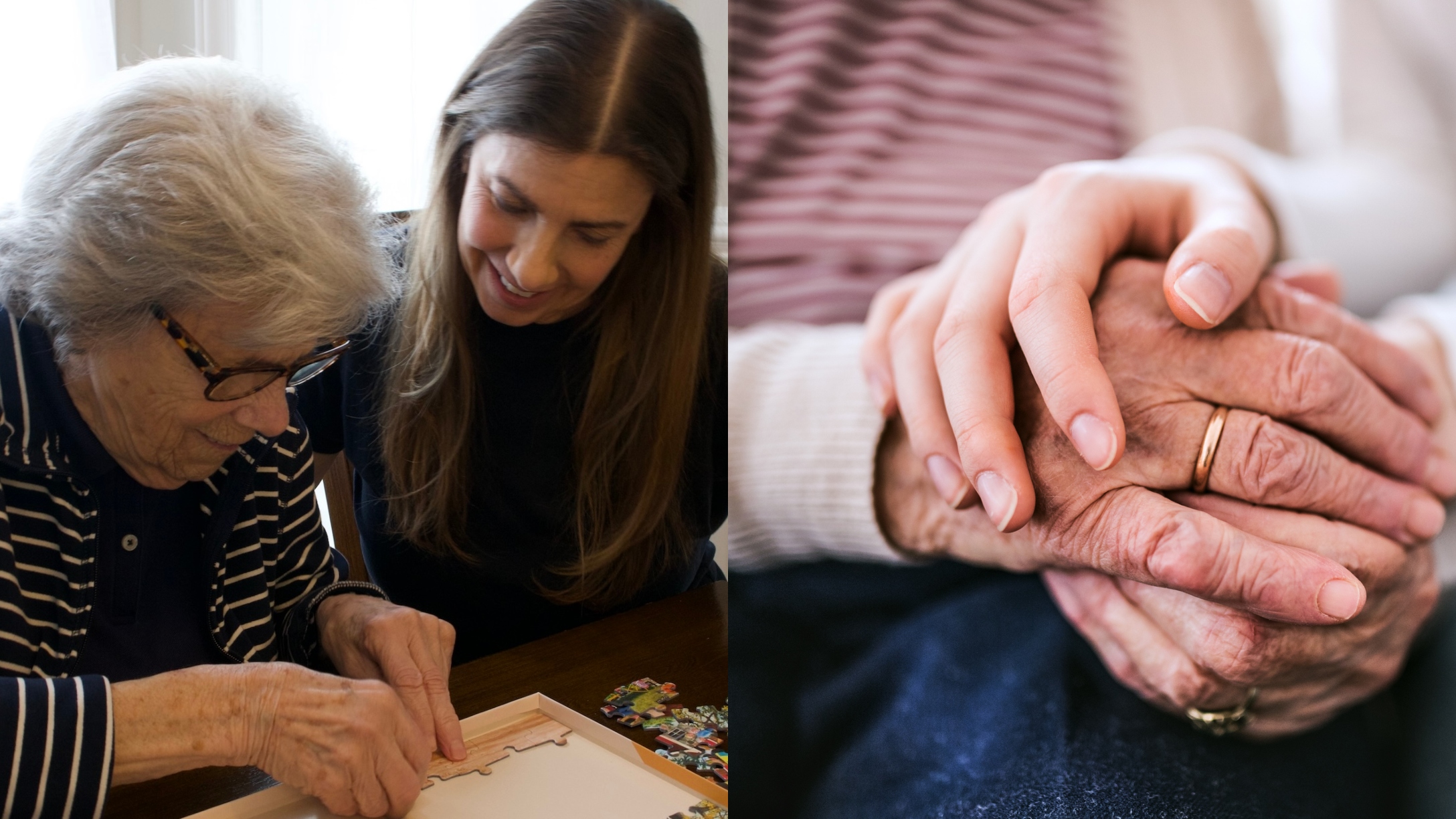
For many busy parents, the sandwich generation stress is real. While feeling pressure to do it all for our children, we may not even realize the kids aren’t the only ones who are getting older.
Before you know it, your parents may reach a point in life where they also need help. Although we want to do everything we can for them, it’s not always easy, and we often wonder how it’s possible to do it all.
As members of the so-called “sandwich generation,” we are stuck in the middle of raising our children but also need to be there to help our aging parents. Millions of women face these challenges yearly, and thankfully resources like CareYaya are emerging to help us get through this stage of life.
More from CafeMom: Navigating Difficult Conversations About Aging & Care with Your Parents as a Sandwich Mom
Here’s how CareYaya has helped one mom manage the stress of being part of the sandwich generation.
Being a sandwich mom isn’t easy.
Parenting is hard, but the sandwich generation stress of caring for aging parents can make things even more difficult. Neal K. Shah realized aging Americans needed help and launched the organization CareYaya to fill a void in the health care industry by helping families access quality care at an affordable price. CareYaya matches students going into health care with families who need companionship care to provide support to over-stressed sandwich generation moms.
Roxy Garrity, chief communications officer for CareYaya, tells CafeMom that Shah knew he had to help.
“The traditional home care industry is inaccessible for many families, with care costing anywhere between $30 to $50 per hour in most cities. This leaves behind the majority of the population that needs support,” Garrity says.
“In addition, there are societywide caregiver workforce shortages, which are only going to get worse as our aging population increases demand for care. CareYaya aspires to solve this through technology and human capital innovation, leveraging AI and algorithms to create a tech-enabled caregiving solution that is affordable across the country, with rates 30 to 50% lower than traditional care agencies.”
When the time comes to begin helping an aging parent, it’s important to know you are not alone.
Garrity says sandwich generation parents often find themselves carrying heavy physical and mental loads.
“With our country’s rapidly aging population, the sandwich generation pressures are only going to increase. And there needs to be a better social safety net. Otherwise, millions of women will leave the workforce in the primes of their careers,” she says.
As with young children, women find themselves as the default caregivers, which can be exhausting.
“Bringing awareness to this situation helps validate the unique struggles these women face, allows them to feel seen and understood, and opens up opportunities for support and resources,” she explains.
Resources, including CareYaya, can help families lighten the burden of caring for aging parents.
Garrity explains that CareYaya is an app that works with college students pursuing careers in the health care industry and empowers these future doctors, nurses, and more through the company’s tech platform.
She explains: “CareYaya is bringing artificial intelligence innovations to help the sandwich generation, such as AI-powered dementia care training that recently won a grant from the National Institutes of Health, that can significantly ease the time and pressure when sandwich generation caregivers find themselves caring for an aging parent with dementia.”
The platform connects families needing care to students in the health care field for shifts (usually between four and eight hours) that provide patients with socialization, company, and assistance with activities of daily living. The caregivers do not perform any CNA-level duties but can provide necessary interaction for aging parents as well as a reprieve for sandwich-generation moms providing caregiving.
CareYaya notes that the students who sign up to be caregivers are motivated by their future careers, so it’s about more than money for them. Often, it’s a win-win design that infuses aging parents with fresh energy and provides future health care workers with valuable experience. In many videos, they even call them “Joygivers.”
One mom found help and support through the platform.
Suzy Moravick’s life changed when she began caring for her 91-year-old mother, Rose Moravick, who has dementia. The daughter quickly realized that caring for her mom meant making sacrifices in other areas of her life, and the struggle was hard.
“Changing roles has been educational, adventurous, wonderful, sometimes sad, and you kind of go through a grieving process as you’re starting to change the roles. You’re losing a piece of that someone,” she says in a video shared by CareYaya.
She adds that it is a painful process because all of a sudden, we are becoming someone we have “never been before,” but caring for an aging parent is a blessing.
More from CafeMom: Report Shows Women Take on Disproportionate Amount of Work When It Comes to Elder Care
The sandwich generation needs to come together.
Garrity understands that getting older is not easy for a parent or a child of an aging parent. She encourages us to lean on other people who are experiencing the same highs and lows and understand that we are not alone.
“Sandwich moms can support each other by forming or joining support groups (online or in-person) to share advice, vent frustrations, and offer encouragement. They can also advocate for better workplace policies, community resources, and societal awareness around the challenges of juggling multigenerational caregiving roles,” Garrity says.
“Additionally, simply listening without judgment and offering respite care to one another can go a long way.”







